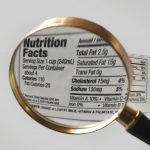April is Alcohol Awareness Month, which sheds light on the dangers of alcohol consumption and alcohol abuse. Here at Bel Marra Health we, too, want to inform you of the alcohol-related risks for your health including ALS, type 2 diabetes, and smoking problems.
Below are some of Bel Marra Health’s editorials that discuss how alcohol consumption affects ALS risk, how a type 2 diabetes medication may be able to treat alcohol addiction, the link between smoking and alcohol, and how alcohol abuse can change a person’s DNA to accelerate the aging process.
 Amyotrophic lateral sclerosis (ALS) risk affected by BMI, dietary intake, and alcohol consumption
Amyotrophic lateral sclerosis (ALS) risk affected by BMI, dietary intake, and alcohol consumption
Advertisement
Amyotrophic lateral sclerosis (ALS) risk is affected by body mass index (BMI), dietary intake, and alcohol consumption. The exact cause of ALS is still not understood widely. But dietary intake, which may play a role in ALS, is a modifiable factor.
Researchers from the University Medical Center Utrecht used a 199-item food frequency questionnaire in order to study dietary intake and the risk of ALS.
The study included newly diagnosed patients with ALS, and the final analysis included 674 ALS patients and 2,093 control patients without ALS.
The researchers uncovered that presymptomatic total calorie intake in patients with ALS was higher than in healthy controls. However, presymptomatic BMI was lower in ALS patients compared to the controls.
Further analysis found that higher premorbid intake of total fat, saturated fat, trans-fatty acid, and cholesterol was linked to an increased risk of ALS, and alcohol intake was linked with a reduced risk.
The authors of the study concluded, “The combination of independent positive associations of a low premorbid body mass index and a high fat intake together with prior evidence from ALS mouse models … and earlier reports on premorbid body mass index support a role for increased resting energy expenditure before clinical onset of ALS.” Continue reading…
 Type 2 diabetes medication can help treat alcohol addiction
Type 2 diabetes medication can help treat alcohol addiction
Researchers have found that a common drug used to treat type 2 diabetes and obesity is also effective for treating alcohol addiction. The findings come from the University of Gothenburg in Sweden. Researchers explained that alcohol addiction is a large problem in today’s society, costing Sweden billions of dollars a year to treat.
Alcohol addiction is a serious health problem that can lead to many health consequences – including death. The recommended number of drinks per week in Sweden is 14 for men and nine for women. Researchers found that 15 percent of the population consumes more than this.
Researchers uncovered a potential to treat alcohol addiction by interfering with the hormone GLP-1. Medication is currently available to interfere with GLP-1 as a means to treat type 2 diabetes and obesity. When we consume alcohol, dopamine is released, which makes us feel good. The medication blocks the increase in dopamine, meaning you no longer feel pleasure from drinking it.
The findings were uncovered by administering the medication to rats. Not only did the rats no longer enjoy consuming alcohol, but they actually decreased their intake while on the medication. Furthermore, the medication reduces relapse, which is another important aspect for those who are eliminating alcohol. Researcher Elisabet Jerlhag said, “The GLP-1-like substance reduced the alcohol consumption by 30-40 percent in rats that drank large quantities of alcohol for several months.” Continue reading…
 Link between smoking and alcohol consumption explained
Link between smoking and alcohol consumption explained
Numerous studies have shown a link between smoking and alcohol consumption, and new research has come to light that further explains the association. Previously, it was discovered that 85 percent of drinkers were also nicotine-dependent. The latest findings, which come from the University of Missouri School of Medicine, reveal that the association comes from the effects of smoking that cancel out the sleep-inducing effects of alcohol.
Lead author of the study Dr. Mahesh Thakkar, said, “We know that many people who drink alcohol also use nicotine, but we don’t know why exactly that is. We have found that nicotine weakens the sleep-inducing effects of alcohol by stimulating a response in an area of the brain known as the basal forebrain. By identifying the reactions that take place when people smoke and drink, we may be able to use this knowledge to help curb alcohol and nicotine addiction.”
Dr. Thakkar has been studying the sleep-inducing effects of alcohol and nicotine for over five years. His previous studies found that nicotine and alcohol increase the pleasure effects by activating the reward center in the brain, which leads to more alcohol consumption. For the latest findings, rats were strapped with sleep-recording electrodes and given alcohol and nicotine. Their findings unveiled that nicotine counters alcohol’s sleep-inducing effects. Continue reading…
 Heavy smoking, alcohol abuse cause DNA changes, accelerate aging process
Heavy smoking, alcohol abuse cause DNA changes, accelerate aging process
Heavy smoking and alcohol abuse have been linked to DNA changes, which can accelerate the aging process. Research was presented at the 2015 American Society of Human Genetics Annual Meeting.
Researchers used publicly available data from Gene Expression Omnibus and analyzed patterns in DNA methylation. Previous research revealed methylation changes could predict how people age and revealed responses to such habits as smoking and drinking alcohol. Two specific locations in genome were identified as having an association with smoking and alcohol.
This allowed researchers to estimate each person’s biological age based on methylation levels at 71 locations in the genome. They calculated the difference between biological age and chronological age to determine the relationship between smoking/alcohol and premature aging.
High levels of smoking were associated with premature aging, and mild alcohol consumption – one to two drinks a day – was related to healthy (the healthiest, actually) aging. Low levels or high levels of alcohol consumption were linked to poor aging.
Meeshanthini Dogan from the study said, “These new tools allow us to monitor smoking and alcohol use in an objective way, and to understand their effects quantitatively. Furthermore, our methods could be used to analyze any set of 450 BeadChip data, which means that existing data can be used to identify new patterns and that all such results can be easily compared.”
Robert A. Philibert, Ph.D., from the University of Iowa added, “Being able to objectively identify future smokers and heavy alcohol users when they are young, before major health issues arise, can help providers and public health practitioners prevent future problems, improve quality of life, and reduce later medical costs.” Continue reading…
 Virtual reality to help treat alcohol addiction
Virtual reality to help treat alcohol addiction
We’re sure that every now and then you enjoy an alcoholic beverage. Maybe it’s in celebration of an occasion or maybe you’ve opted for a glass to wind down. Occasional drinking isn’t too bad. In fact, it’s been shown to have some health benefits.
Advertisement
But when drinking alcohol becomes excessive, when it becomes your go-to resort to manage life, when it begins taking over the activities you once enjoyed, you might very well have an alcohol addiction.
Within the United States alone, alcohol addictions affect 16.6 million adults, and alcohol-related deaths are around 88,000. Drinking in excess amounts can severely harm your body and, sadly, end your life. This is why treating your alcohol addiction is so important.
A new means has emerged that appears to be effective in treating alcohol addiction. It involves the use of virtual reality therapy, and the findings from a study testing this method show promise. Continue reading…
